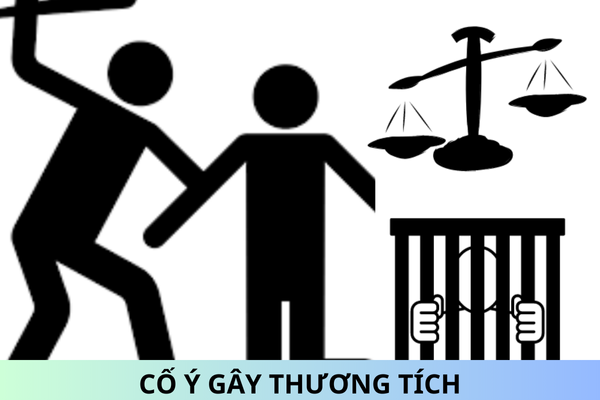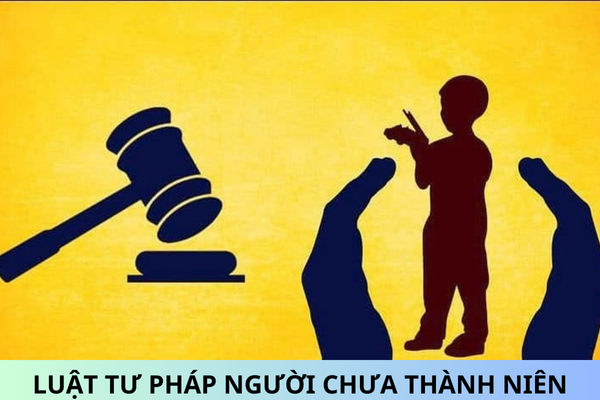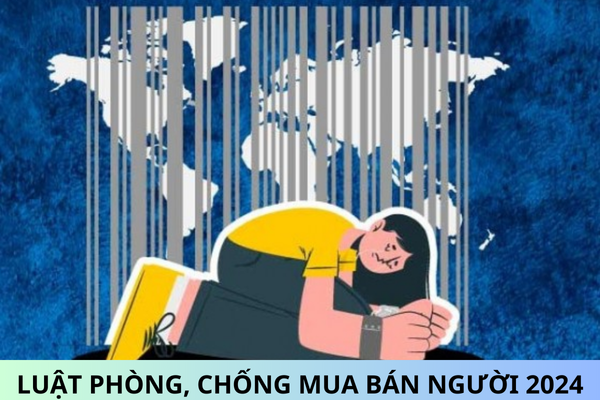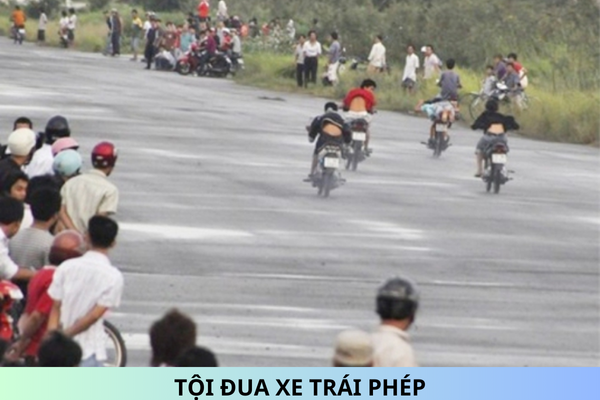Which serious diseases do offenders suffer from that are exempt from criminal liability in Vietnam?
Which serious diseases do offenders suffer from that are exempt from criminal liability in Vietnam? If the suspect has a serious illness, does the investigation have to be suspended in Vietnam? Question from Mr. Thap (Son La)
Which serious diseases do offenders suffer from that are exempt from criminal liability in Vietnam?
Pursuant to Point b, Clause 2, Article 29 of the 2015 Criminal Code, which stipulates basis for exemption from criminal responsibility:
Basis for exemption from criminal responsibility
1. A criminal offender shall be exempt from criminal responsibility on one of the following bases:
a) A policy or law is changed during the process of investigation, prosecution or trial and accordingly, the offender's act is no longer dangerous to society;
b) A general amnesty is granted.
2. A criminal offender might be exempt from criminal responsibility on one of the following bases:
a) The situation is changed during the process of investigation, prosecution or trial and accordingly, the offender is no longer dangerous to society;
b) The offender has a fatal disease during the process of investigation, prosecution or trial and no longer poses a threat to society;
c) The offender confesses his/her crime, contributes to the crime discovery and investigation; minimizes the damage inflicted by his/her crime, have made reparation or special contributions that are recognized by the State and society.
3. The person who involuntarily commits a less serious crime or a serious crime and causes damage to life, health, honor or property of others will be exempt from criminal responsibility if the aggrieved person or his/he representative voluntarily seeks reconciliation and requests exemption from criminal responsibility
According to the above regulations in Vietnam, a criminal offender who suffers from a serious illness and can no longer pose a danger to society can be exempted from criminal liability when conducting investigation, prosecution, or trial.
However, currently there is no document specifically regulating serious diseases that are exempt from criminal liability in Point b, Clause 2, Article 29 of the 2015 Criminal Code.
Determining what a dangerous disease is and the list of diseases considered serious diseases can apply a number of laws similar to the following:
[1] Decree 140/2021/ND-CP stipulating the regime of applying administrative measures of sending to reformatories and compulsory education establishments
In Clause 4, Article 3, Decree 140/2021/ND-CP stipulates that a person with a serious illness is a person suffering from one of the life-threatening diseases such as:
- End-stage cancer;
- Disabled;
- Leprosy;
- TB is resistant to drugs;
- Cirrhosis and ascites;
- Heart failure grade 3 or higher;
- Kidney failure grade 4 or higher;
- HIV infection has progressed to AIDS stage;
- Other diseases that have a written confirmation from a medical examination and treatment facility at the district level or higher confirming that they are dangerous diseases according to regulations of the Ministry of Health.
[2] Decree 134/2016/ND-CP guiding the Law on export tax and import tax
In Appendix 4, the List of dangerous diseases issued together with Decree 134/2016/ND-CP lists 42 types of diseases considered dangerous diseases as follows:
|
1. Cancer |
16. Progressive muscular atrophy |
30. Lupus erythematosus |
|
2. First-time myocardial infarction |
17. Severe rheumatoid polyarthritis |
31. Organ transplantation (heart, liver, kidney transplantation) |
|
3. Coronary artery surgery |
18. Gangrene because of hemolytic streptococcal infection |
32. Progressive pulmonary tuberculosis |
|
4. Heart valve replacement surgery |
19. Aplastic anemia |
33. Severe burns |
|
5. Aorta surgery |
20. Paralysis of two limbs |
34. Heart muscle disease |
|
6. Stroke |
21. Blindness of both eyes |
35. Alzheimer’s disease |
|
7. Coma |
22. Loss of two limbs |
36. Pulmonary arterial hypertension |
|
8. Multiple sclerosis |
23. Hearing loss |
37. Neurotransmitter disorder |
|
9. Amyotrophic lateral sclerosis |
24. Mutism |
38. Severe traumatic brain injury |
|
10. Parkinson’s disease |
25. Systemic and permanent injuries |
39. Podoconiosis |
|
11. Bacterial meningitis |
26. Renal failure |
40. Occupational HIV infection |
|
12. Severe encephalitis |
27. Medullary cystic disease |
41. Bone marrow transplantation |
|
13. Benign brain tumors |
28. Recurrent chronic pancreatitis |
42. Poliomyelitis |
|
14. Muscular dystrophy |
29. Liver failure |
|
|
15. Progressive spinal muscular palsy |
|
|
[3] Resolution 02/2018/NQ-HDTP guiding the application of Article 65 of the Penal Code on suspended sentences issued by the Council of Judges of the Supreme People's Court
Clause 4, Article 8 of Resolution 02/2018/NQ-HDTP stipulates that a serious illness is a case where a provincial hospital, military hospital of military zone level or higher concludes that the person receiving a suspended sentence is dangerous to life, difficult to treat, such as:
- End-stage cancer;
- Cirrhosis and ascites;
- Severe grade 4 drug-resistant tuberculosis;
- Disabled;
- Heart failure grade 3, kidney failure grade 4 or higher;
- HIV AIDS stage is having opportunistic infections that are unable to take care of themselves and have a high risk of death.
[4] Circular 26/2014/TT-BQP on List of dangerous diseases and List of diseases requiring long-term treatment to implement regimes and policies in the military issued by the Minister of National Defense
In Section 1, List of dangerous diseases and diseases requiring long-term treatment issued together with Circular 26/2014/TT-BQP stipulating the list of dangerous diseases to implement regimes and policies in the military, there is regulation 09 dangerous diseases, including:
1. Cancers
2. Nervous system diseases
- Damage to the central nervous system due to many causes leaves irreversible sequelae: Paralysis of all four limbs, paralysis of both lower limbs, no longer able to sit up and walk independently, body is exhausted, must have regular, ongoing medical care provider.
- Severe dementia, complete memory loss, loss of cerebral cortex requires constant and regular medical care.
- Complete dementia, a state of brain loss after traumatic brain injury.
- Parkinson's disease in the sequela stage requires medical care.
- Grand mal seizures (complete), very rapid or continuous seizures.
3. Liver diseases
Decompensated cirrhosis: Large and frequent ascites; Gastrointestinal bleeding complications due to ruptured esophageal varices, recurring many times; brain-liver-kidney syndrome; The body is severely exhausted and is no longer able to serve itself.
4. Urinary system diseases
Decompensated stage 4 chronic kidney failure requiring dialysis cycles of 12 hours per week or more, severe anemia, complications of subcutaneous bleeding, repeated digestion; The body is seriously exhausted and needs help.
5. Metabolic diseases
Type 1 or late stage 2 diabetes has severe complications in target organs (eyes, heart, kidneys, blood vessels) causing serious health effects and requires regular help.
6. Chronic lung diseases have entered the decompensation stage, with many serious complications such as:
- Decompensated respiratory failure with frequent, severe flare-ups;
- Severe physical exhaustion;
- Loss of self-service ability.
7. Completely decompensated stage 4 heart failure due to many different causes, irreversible with treatment; Frequent difficulty breathing, unable to walk independently.
8. Diseases of the musculoskeletal system, bones, and joints
Myasthenia gravis, ineffective treatment, requiring long-term mechanical ventilation.
Joint diseases have had sequelae of deformity and stiffness in many joints, limited movement of the whole body, inability to walk, and loss of self-service ability.
9. HIV infection has progressed to the stage of clinical symptoms (AIDS), the body is severely depleted.
Thus, if an offender suffers from a serious illness, the above regulations can be applied depending on each case. However, in order for a criminal to have a serious illness to be exempted from criminal liability, it must be accompanied by the condition that he is no longer able to pose a danger to society in Vietnam.

Which serious diseases do offenders suffer from that are exempt from criminal liability in Vietnam? (Image from the Internet)
If the suspect has a serious illness, does the investigation have to be suspended in Vietnam?
Pursuant to Clause 1, Article 229 of the 2015 Criminal Procedure Code, supplemented by Clause 5, Article 1 of the Law Amending and Supplementing a Number of Articles of the Criminal Procedure Code, stipulates suspension of investigation:
Suspension of investigation
1. Investigation authorities shall decide to suspend investigative activities in one of the following events:
a) Suspects are unidentified or their whereabouts are unknown despite the expiration of the investigation time limit. If the location of suspects is unknown, investigation authorities must issue wanted notices before suspending the investigation;
b) If judicial expert examination finds that suspects suffer from mental illness or fatal diseases, the investigation may be suspended ahead of schedule;
c) When soliciting appraisals, requesting asset valuation, or requesting foreign legal assistance without results but the investigation period has expired. In this case, appraisal, asset valuation, and mutual legal assistance will continue to be conducted until results are obtained.
d) When the investigation cannot be completed due to force majeure due to natural disasters or epidemics but the investigation period has expired.
The Director of the Supreme People's Procuracy shall preside over and coordinate with the Minister of Public Security, the Minister of National Defense and heads of other relevant agencies to detail this point.
...
Thus, when a defendant has a serious illness and a judicial examination concludes that he has a serious illness, the investigation can be suspended before the investigation period expires in Vietnam.
Can persons under the age of 18 who commit a crime and suffer from a serious illness have their sentence reduced in Vietnam?
Pursuant to Article 105 of the 2015 Criminal Code, which stipulates Sentence commutation:
Sentence commutation
1. If a juvenile offender who is sentenced to community sentence or imprisonment has shown improvements and has served one quarter of the sentence, the court shall consider commuting the sentence. Each commutation may reduce the sentence by up to 04 years, provided the offender has to serve at least 2/5 of the sentence.
2. If a juvenile offender who is sentenced to community sentence or imprisonment has made reparation in an effort to atone for the crime or has a fatal disease, commutation shall be considered and the remaining sentence may be cancelled.
3. If the sentence imposed upon a juvenile offender is a fine but he/she is facing prolonged financial hardship due to a natural disaster, conflagration, accident or disease or has made reparation in an effort to atone for the crime, the court, at the request of Director of the Procuracy, might exempt him/her from paying the remaining fine.
Thus, offenders under 18 years old who are sentenced to community sentence or imprisonment will be immediately considered for reduction and may be exempted from serving the remaining penalty if they suffer from a serious illness in Vietnam.
Best regards!










